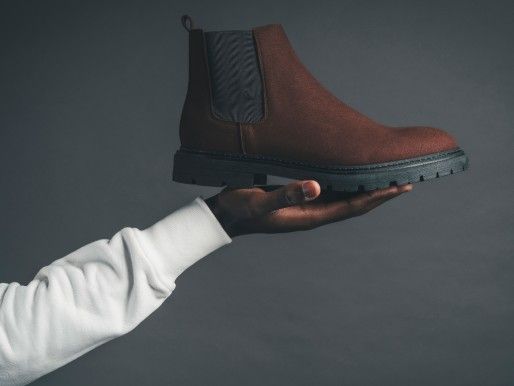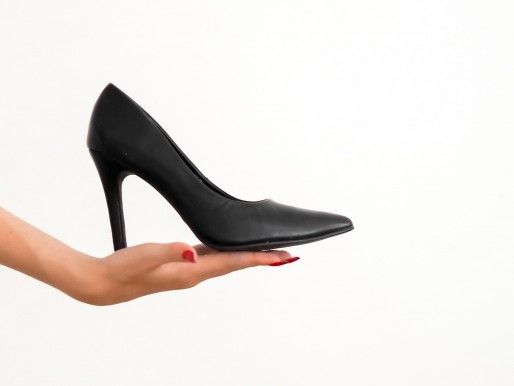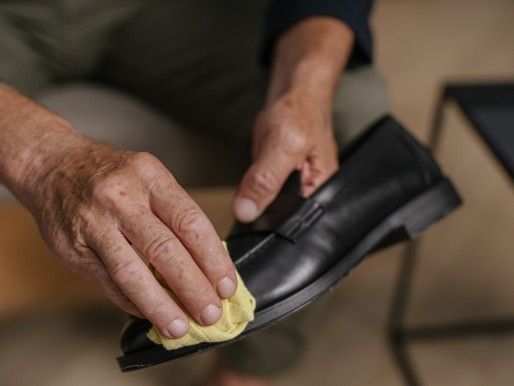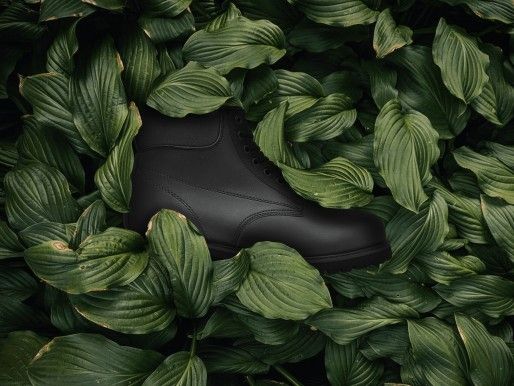What is fast fashion? What makes something organic? Understand sustainable fashion keywords to improve your carbon footprint.
After the success of our last sustainable glossary article, we wanted to bring you some more terms commonly used in the ethical fashion world. So, without further ado let's jump in...
Sustainable fashion
The term ‘sustainable fashion’ is best understood when ‘sustainability’ is firstly defined. According to the Cambridge Dictionary, sustainability refers to “the quality of being able to continue over a [long] period of time” while “causing little or no damage to the environment”. Therefore ‘sustainable fashion’ can be said to be a movement in the fashion industry where a long-term, eco-friendly approach is taken to the creation and consumption of products. Ethically, it also involves no harm being brought to people or animals in the process and promotes positive change.
“Owning and buying what you need, rather than what you want”
Minimalism
Simply put, ‘minimalism’ is a way of life that focuses on the necessary. It involves stripping away everything unnecessary and only keeping things that bring value and joy. Therefore, in the fashion world, minimalism refers to consciously consuming minimal clothes and accessories which are simplistic, adaptable, and practical. It is the opposite of fast fashion’s encouragement to consume excess garments.
Ultimately, it comes down to only owning and buying what you need, rather than what you want. Plus, having a minimalist wardrobe is likely to save you some cash, be better for the planet, and be less stressful thanks to the reduced choices. Everyone wins.
Organic
‘Organic can be defined as a natural way of farming without the use of chemicals. Organic materials are therefore created without the use of chemicals (artificial pesticides, fertilizers, or other chemicals). Only natural fabrics gain an organic certification.
Organic materials have many benefits including being kinder on the planet by reducing the environmental impact of textile production, and ethically advantaging humans and animals, since chemical exposure is avoided, and sustainable production is ensured. Often, organic clothing will be referred to in the fashion industry as Green Clothing or Green Fashion.
Rana Plaza
On April 24th, 2013, the Rana Plaza factory building located in Bangladesh collapsed. 1,134 people were killed and thousands more were injured. It is the worst industrial incident to ever hit the garment industry. Just the day before the incident occurred, the shops and banks on the lower floors of the building were closed due to large structural cracks being discovered, but the garment factory owners on the upper floors ignored these warnings and ordered garment workers to return to work. The entire building collapsed just hours later.
The Rana Plaza disaster drew worldwide attention to the unsafe workplaces within the fashion world and put pressure on brands to start taking accountability for their workers across the whole supply chain. It highlighted the need for transparency within the whole production process of items. Even today, over eight years on, Rana Plaza stands as proof of the overall need for continuing change within the fashion world, to one where ethics for all workers are taken seriously.
Cost-per-wear (CPW)
‘Cost-per-wear’ is a numerical formula that allows you to see whether an item is worth purchasing. The formula highlights how “expensive” clothing is usually “cheaper” when considering its durability and how often it can be worn. To work out the ‘cost-per-wear’ you take the cost of an item and divide it by the number of times you will wear it or have worn it.

When you calculate the CPW for expensive, sustainable items and compare it to the CPW of cheap, poorly-made products, it is no wonder the high-quality products seem easily worth the extra few pennies. Yet another reason to steer clear of fast fashion, which is usually only designed to last short-term. So, choose long-term, choose sustainability.
Fast Fashion
‘Fast fashion’ is a term used to describe methods within the fashion industry where items are produced, manufactured, and transported as cheaply as possible with only trends in mind. The products are not designed to last more than one season. Often, the true cost of the item is felt by the lowly paid workers, the harm caused to the environment, and the consumer’s wallets (through overconsumption).

Source: The Guardian
Slow fashion encourages the buying of minimal, higher-quality products that will last longer and are kinder to people and the planet, the direct opposite of fast fashion.
GOTS Certified
GOTS’ stands for the Global Organic Textile Standard. It is the “worldwide leading textile processing standard for organic”. Some GOTS-certified products include yarns, fabrics, and clothes to name but a few.
For a product to be ‘GOTS certified’ it means it must have met a clear and transparent set of criteria. The four distinctive features include organic fibers, ecological and social criteria, certified processing stages, and third-party certification. In addition, it also has third-party on-site inspection and certification of processors, manufacturers, and traders.
With terms such as ethical clothing and fair production being ambiguous in a world of greenwashing, reliable certifications are essential. It gives consumers more power since they can choose products that they can be sure are truly organic and produced from green supply chains.
“A rubbish truck full of clothes ends up on landfill sites every second”
Second-hand
According to the Collins Dictionary, ‘second-hand’ refers to things that have already been owned by someone else, therefore they are not new. The second-hand economy has seen a huge rise in recent years, as consumers have become more aware of the benefits compared to purchasing brand new. Through the recovery and resale of items, the environment benefits through less need for new products and the consumer benefits in conscience and money.
It is estimated that “a rubbish truck full of clothes ends up on landfill sites every second”. Since every piece of clothing, accessory, or shoe has undergone a complex process to be manufactured involving precious energy resources, recycling is an essential part of combating climate change. By reusing something, it is being saved from polluting landfill. Second-hand is an undeniable part of the future of fashion.
Biodegradable
In essence, ‘biodegradable’ means something that can be broken down. Biodegradable material can decompose naturally into compounds which then become environmental nutrients.
Biodegradable clothing or garments “are those that have been manufactured with the aim of having the least impact possible on the environment during their entire life cycle”. For example, fabrics such as organic cotton, bamboo, and hemp are all biodegradable. These materials look and feel amazing. For instance, take a look at a pair of our beautifully made organic cotton boots here.
---
At Nae Vegan Shoes, our values of veganism, sustainability, and ethics are at the forefront of our brand. We are constantly learning more about the latest advancements in technology to allow us to use innovative materials in ways that are kind to people, animals, and the planet. We encourage you to join our philosophy.
Have a great day,
The Nae Team







